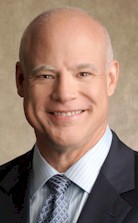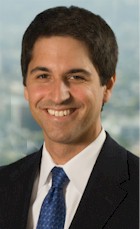
In a business that interacts with guests 24 hours a day, 365 days a year, success for a hotel is absolutely determined by the quality of staffing and service, and those vital operational elements are generally provided by the Human Resource department. However, staff recruitment is just one area of responsibility for today's HR professional. Generally, an HR team leads all aspects of new employee orientation and on-boarding; creating training systems; managing career development; and ensuring compliance with all legal, employment and government regulations. Today's HR professional must also be an effective communicator who is able to interact with all levels of staff, and establish good working relationships with all department heads. They must have an intrinsic desire to see others succeed, and be able to recognize potential in others. Finally, they must be able to work under pressure because there always seem to be crises - anything from technology breaches to staffing shortages to personnel issues, so the ability to thrive in a multiple priority environment is a necessity. The March Hotel Business Review will document some of the biggest challenges currently facing HR professionals, and will report on some of the best practices they are employing to achieve their diverse goals.



 In a business that interacts with guests 24 hours a day, 365 days a year, success for a hotel is absolutely determined by the quality of staffing and service, and those vital operational elements are generally provided by the Human Resource department. However, staff recruitment is just one area of responsibility for today's HR professional. Generally, an HR team leads all aspects of new employee orientation and on-boarding; creating training systems; managing career development; and ensuring compliance with all legal, employment and government regulations. Today's HR professional must also be an effective communicator who is able to interact with all levels of staff, and establish good working relationships with all department heads. They must have an intrinsic desire to see others succeed, and be able to recognize potential in others. Finally, they must be able to work under pressure because there always seem to be crises - anything from technology breaches to staffing shortages to personnel issues, so the ability to thrive in a multiple priority environment is a necessity. The March Hotel Business Review will document some of the biggest challenges currently facing HR professionals, and will report on some of the best practices they are employing to achieve their diverse goals.
In a business that interacts with guests 24 hours a day, 365 days a year, success for a hotel is absolutely determined by the quality of staffing and service, and those vital operational elements are generally provided by the Human Resource department. However, staff recruitment is just one area of responsibility for today's HR professional. Generally, an HR team leads all aspects of new employee orientation and on-boarding; creating training systems; managing career development; and ensuring compliance with all legal, employment and government regulations. Today's HR professional must also be an effective communicator who is able to interact with all levels of staff, and establish good working relationships with all department heads. They must have an intrinsic desire to see others succeed, and be able to recognize potential in others. Finally, they must be able to work under pressure because there always seem to be crises - anything from technology breaches to staffing shortages to personnel issues, so the ability to thrive in a multiple priority environment is a necessity. The March Hotel Business Review will document some of the biggest challenges currently facing HR professionals, and will report on some of the best practices they are employing to achieve their diverse goals.





































